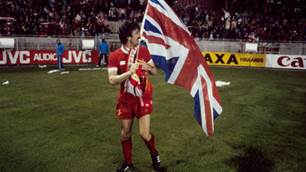Gabriel Heinze could be left in footballing limbo if he decides to appeal against the Premier League's decision not to allow him to quit Manchester United for Liverpool.
A three-man panel decided United were right to block Heinze's dream move to Anfield, ruling a letter, signed by Red Devils chief executive David Gill, confirming the fee at which the Argentina defender's current club would be willing to sell brought neither an obligation for a sale or superseded his present contract, which still has two years to run.
Heinze is now considering his options but an appeal is expected sometime tomorrow as the 29-year-old has his heart set on becoming the first United play to join Liverpool since Phil Chisnall in 1964.
Yet, having antagonised the Old Trafford outfit with his conduct already, Heinze is playing a dangerous game as United will have 14 days to respond to any appeal.
In effect, it means should Heinze challenge the verdict, United can stall long enough to ensure the $15million capture from Paris St Germain does not leave at all before the August 31 transfer deadline.
Certainly, given their implacable stance to a deal involving Liverpool, United are hardly likely to do anything which could facilitate such a move.
Instead, it seems they will attempt to get Heinze's representatives to consider letting the player move somewhere else, with French champions Lyon currently the most likely option.
Given the current situation, it is impossible to imagine Heinze ever playing for the Old Trafford outfit again, with supporters lining up to condemn him for what they see as a virtual act of treason.
Liverpool too may have reason to be slightly unhappy with the player given it now appears they had little hope of signing him judging by the strength of the Premier League verdict.
United always maintained the letter was written in such a way to make it obvious any sale would involve an overseas club, while Heinze's agent was informed verbally in no uncertain manner that the Red Devils would not negotiate with a major domestic rival. It was a stance the Premier League endorsed without hesitation.
A statement issued by the three-man panel read: "The hearing concluded that nature and intention of the disputed June 13 2007 letter, especially when taken in context of verbal discussions and Manchester United FC's transfer policy, was unambiguous in that it envisages only an international transfer.
"Furthermore the hearing finds the letter constitutes an 'agreement to agree', and did not create an obligation or binding agreement for the club to transfer the player to any particular club.
"In other words the letter is evidence of an intention to negotiate, both between the parties and with potential buying clubs, and not evidence of any intention to create legal relations."
Heinze is now considering his options but an appeal is expected sometime tomorrow as the 29-year-old has his heart set on becoming the first United play to join Liverpool since Phil Chisnall in 1964.
Yet, having antagonised the Old Trafford outfit with his conduct already, Heinze is playing a dangerous game as United will have 14 days to respond to any appeal.
In effect, it means should Heinze challenge the verdict, United can stall long enough to ensure the $15million capture from Paris St Germain does not leave at all before the August 31 transfer deadline.
Certainly, given their implacable stance to a deal involving Liverpool, United are hardly likely to do anything which could facilitate such a move.
Instead, it seems they will attempt to get Heinze's representatives to consider letting the player move somewhere else, with French champions Lyon currently the most likely option.
Given the current situation, it is impossible to imagine Heinze ever playing for the Old Trafford outfit again, with supporters lining up to condemn him for what they see as a virtual act of treason.
Liverpool too may have reason to be slightly unhappy with the player given it now appears they had little hope of signing him judging by the strength of the Premier League verdict.
United always maintained the letter was written in such a way to make it obvious any sale would involve an overseas club, while Heinze's agent was informed verbally in no uncertain manner that the Red Devils would not negotiate with a major domestic rival. It was a stance the Premier League endorsed without hesitation.
A statement issued by the three-man panel read: "The hearing concluded that nature and intention of the disputed June 13 2007 letter, especially when taken in context of verbal discussions and Manchester United FC's transfer policy, was unambiguous in that it envisages only an international transfer.
"Furthermore the hearing finds the letter constitutes an 'agreement to agree', and did not create an obligation or binding agreement for the club to transfer the player to any particular club.
"In other words the letter is evidence of an intention to negotiate, both between the parties and with potential buying clubs, and not evidence of any intention to create legal relations."
Copyright (c) Press Association
Related Articles

Joeys boss keen to cap Lucas Neill's whizkid son

'It's massive': Liverpool signs rising Aussie goalkeeping star













